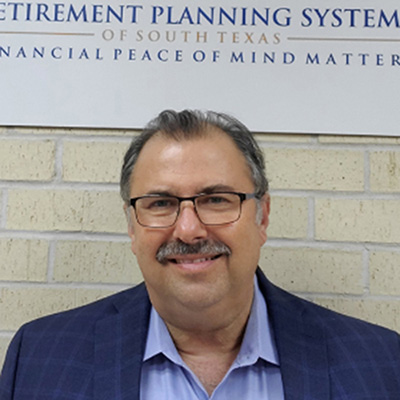
Article Library

Charles Cardenas
RPS Retirement Planning Systems of South Texas
212 W 3rd St
Weslaco, Texas 78596
charles@rpsstx.com
(956) 463-6862
Fighting Our Inner Financial Foes
In the grand theater of life, money often plays a starring role, influencing our decisions, shaping our aspirations, and even dictating our sense of self-worth. Yet, beneath the surface of our financial transactions lies a complex battleground within our minds, where cognitive biases and emotional reactions often outmaneuver logical thinking. This invisible tussle can turn our brain into an unwitting adversary in the quest for financial well-being.
Cognitive Biases:
Cognitive biases are at the heart of this conflict, the brain's shortcuts that save energy but skew reasoning. One such bias, the 'confirmation bias,' leads us to favor information that aligns with our existing beliefs, closing our eyes to alternative perspectives. When it comes to money, this can mean overestimating the success of our investments or underplaying the risks based on past decisions or the echo chambers of our social circles.
The Sunk Cost Fallacy:
Another formidable foe is the 'sunk cost fallacy,' a mental trap that compels us to cling to losing investments or continuing down unprofitable paths simply because we've already invested resources. This fallacy traps us in the past, making it hard to make objective decisions that would benefit our future financial health.
Emotional Influence:
Emotions, too, play a pivotal role in this inner drama. The thrill of a potential gain can often eclipse the rational assessment of risk, leading to impulsive decisions that favor immediate gratification over long-term stability. Conversely, the fear of loss can paralyze us, preventing us from taking calculated risks necessary for growth.
The Endowment Effect:
The 'endowment effect' is another actor on this stage, convincing us that what we own is inherently more valuable than it might be on the open market. This can make us hold onto assets longer than we should, missing opportunities to diversify or liquidate when it's most advantageous.
Reclaiming Control:
But all is not lost in this cerebral struggle. Understanding these mental machinations is the first step toward reclaiming control. Mindfulness and education can illuminate the biases and emotional triggers that lead us astray, empowering us to make decisions that align with our t0rue financial goals and well-being.
Strategies for Financial Empowerment
One effective strategy is automating financial decisions where possible, reducing each transaction's emotional weight and helping maintain a course aligned with our long-term objectives. Regularly reviewing and adjusting these automated choices can ensure they stay in tune with our evolving financial landscape.
Cultivating a Diverse Advisory Network
Another approach is cultivating a diverse advisory network, offering multiple perspectives that can challenge our biases and broaden our understanding. This can include financial advisors and peers and mentors who can offer insights from their own experiences.
Ultimately, the journey toward financial wisdom is as much about understanding the intricacies of the market as it is about unraveling the complexities of our minds. By recognizing the subtle ways our brain can become our worst enemy in financial matters, we can begin to navigate the mind's money maze with greater awareness and agility. The goal is not to eliminate all bias or emotion—after all, they are part of what makes us human—but to bring them into balance with rational thought, crafting a financial strategy that is as sound in theory as it is in practice.
Many people have learned about the power of using the Safe Money approach to reduce volatility. Our Safe Money Guide is in its 20th edition and is available for free.
It is an Instant Download. Here is a link to download our guide:

Best Tips
For A Worry-Free
Retirement
The Safe Money Guide